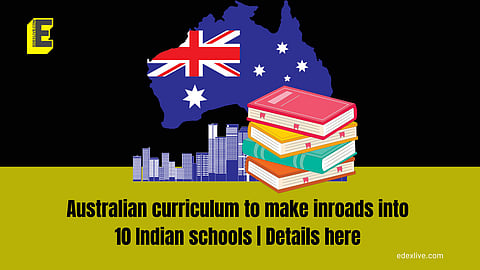

About 4% of Australia’s population is of Indian heritage, a number which has doubled over a decade, highlighted Hilary McGeachy, Australian Consul General in Bengaluru, during the 20th annual conference of the Association of International Schools of India (TAISI), which marked the debut of the Australian Curriculum in India.
The curriculum is expected to provide Indian schools with diverse educational tools that align with international standards, providing students a competitive edge in the global academic landscape. The event also introduced ‘Education 4.0’ - an initiative aimed at integrating Artificial Intelligence (AI), social media, and emotional intelligence into school curriculums.
Angelique Smith, Associate Director of International Education Strategic and External Relations, SCSA, at Department of Education, Western Australia, highlighted that the curriculum will be initially piloted in 10 schools across different parts of the country, according to a report by The New Indian Express.
“It will include integration of general capabilities within subjects and courses to ensure that students are equipped with critical thinking, numeracy, and literacy skills, not just in English but also in their first language,” she said.
The curriculum, which has been implemented for over 30 years in countries like Japan and Malaysia, allows regular Central Board of Secondary Education (CBSE) schools to offer dual programmes without the need for separate campuses, Angelique said, noting that this move is in response to the rising demand for international education among India’s middle class, particularly in the smaller cities.
Syed Sultan Ahmed, Chairperson of TAISI, highlighted that unlike private boards such as Cambridge, Indian School Certificate Examinations (ICSE), and International Baccalaureate (IB), the Australian curriculum represents a government backed initiative.
Syed highlighted the pilot programme, which began last year in Punjab and aims to expand and refine curriculum’s implementation.
